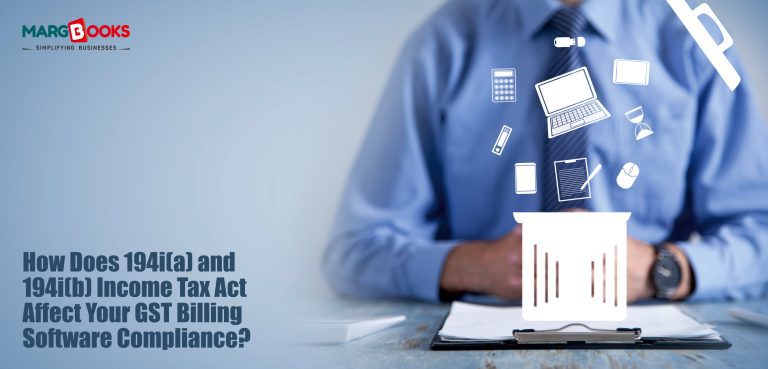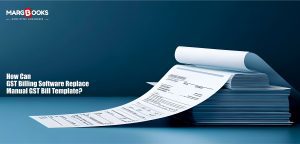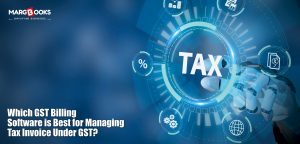In today’s digital business landscape, staying compliant with both GST regulations and income tax provisions is more than just a good practice—it’s a necessity. If you’re a business owner, accountant, or finance manager, you’ve probably heard about Section 194I (a and b) of the Income Tax Act. But have you ever thought about how 194i a and 194i b could affect your GST Billing Software and its compliance?
What are Section 194i a and 194i b of the Income Tax Act?
Section 194I of the Income Tax Act, 1961, deals with Tax Deducted at Source (TDS) on rent payments. This section is subdivided into two parts:
- 194I(a): TDS on rent for the use of land, building, land appurtenant to a building, or furniture and fittings.
- 194I(b): TDS on rent paid for the use of plant and machinery or equipment.
Now, you may ask—how is rent related to GST Billing Software? Here’s where it gets interesting.
Understanding the Intersection of 194i a and 194i b With GST
While GST and TDS are governed by two different laws (GST Act and Income Tax Act, respectively), businesses must ensure that their systems, including billing and accounting software, are compliant with both frameworks.
Here’s why this matters:
- If you’re paying rent above a certain threshold (₹2,40,000 per annum as per current provisions), you’re required to deduct TDS under section 194i a or 194i b.
- Meanwhile, GST laws require you to include applicable taxes in your invoices and maintain clean, traceable records of every transaction.
So, if your GST Billing Software doesn’t account for TDS obligations under 194i, it could lead to compliance issues, penalties, or mismatches in tax filings.
Why Your GST Billing Software Needs to Be TDS-Aware
Let’s say you’re renting machinery for your factory operations (falling under 194i b) and also leasing an office building (194i a). In both cases:
- You must deduct TDS before making rent payments.
- You need to report these deductions properly.
- Your GST input credit and ITC calculations may be affected.
A good GST Billing Software should ideally:
- Track rent payments across both categories (194i a and 194i b).
- Auto-calculate TDS where applicable.
- Generate compliant TDS certificates and reports.
- Sync with your GST filings to avoid duplication or mismatch.
And that’s where integrated solutions like MargBooks come into play.
How MargBooks Helps You Stay Compliant
MargBooks, a cloud-based GST Billing Software, goes beyond just GST invoicing. It’s built keeping Indian taxation in mind—meaning, it’s equipped to handle TDS under 194i a and 194i b alongside your regular GST billing.
Here’s how it simplifies your compliance:
1. Automatic TDS Detection
When you enter a transaction involving rent, MargBooks can automatically flag whether TDS under 194i a or 194i b applies, based on the nature of the payment.
2. Real-time Calculation
It calculates the applicable TDS and adds the entry to your TDS ledger, without manual effort.
3. Integrated GST & TDS Reporting
With MargBooks, you get unified reports that combine your GST obligations and TDS deductions, making life easier at the time of filing returns.
4. Customizable Templates
Whether it’s rent for equipment or office space, you can create invoice templates that reflect both GST and TDS details correctly.
5. Cloud Access & Multi-user Collaboration
Finance teams can collaborate in real-time, ensuring every rent transaction is accounted for correctly-be it under 194i a or 194i b.
Common Pitfalls When Ignoring 194i a and 194i b in GST Billing
Let’s be real. Many businesses run into trouble not because they want to evade taxes, but because their systems don’t talk to each other. Here are a few common mistakes:
- Ignoring TDS deduction on rent: This leads to notices from the IT department.
- Incorrect TDS rate selection: Different items (land vs. machinery) have different deduction rules.
- Mismatch in GST ITC claims and TDS records: This can flag you during audits.
- Manually tracking compliance: High risk of errors.
All of these can be mitigated by using a robust, intelligent GST Billing Software like MargBooks that factors in the nuances of 194i a and 194i b.
Final Thoughts
Taxation in India is complex, no doubt. But with the right tools and awareness, staying compliant doesn’t have to be a headache. Sections 194i a and 194i b may seem like small provisions, but they can have a big impact on how you manage your business finances, especially rent-related payments.
By ensuring that your GST Billing Software is not just GST-savvy but also tax-smart, you’re saving time, reducing errors, and staying on the good side of both the Income Tax and GST departments.
So, if you haven’t yet evaluated your software stack for compliance with 194i a and 194i b, now’s the time. And if you’re looking for a reliable, Indian-made solution, MargBooks is certainly worth checking out.




